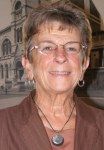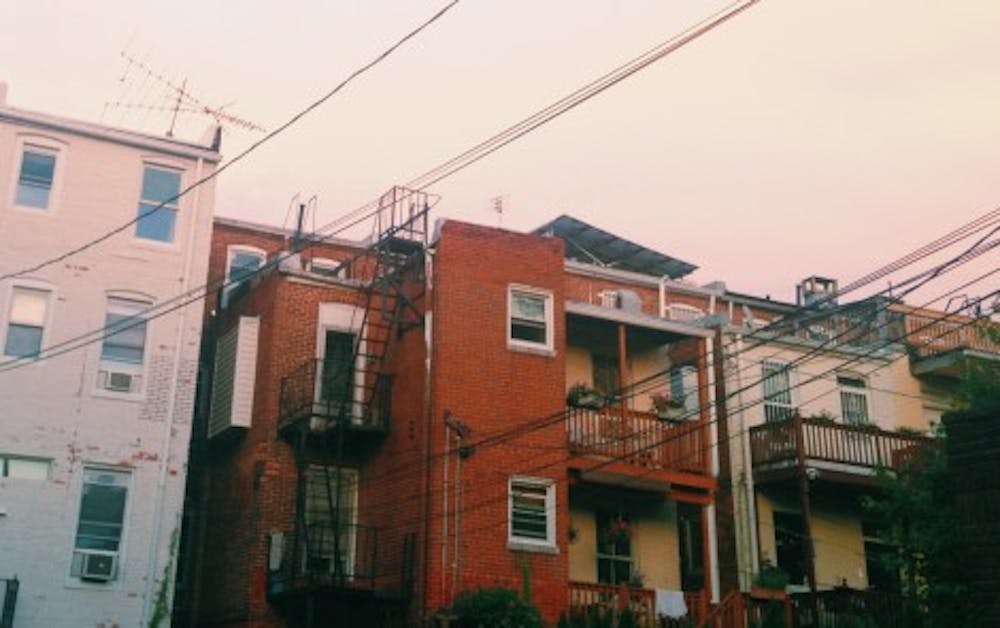By ABBY BIESMAN
Baltimore City Mayor Stephanie Rawlings-Blake signed a bill into law on July 20 that fines residents if they are reported to the Baltimore Police Department (BPD) for “neighborhood nuisances,” such as noisy or unruly activity.
Johns Hopkins University students have mixed feelings about what this bill will mean for the future of Charles Village. Violations of the bill have already affected the Hopkins community.
Under the revised legislation, the first offense incurs a $500 fine, and each offense thereafter in a 12 month period incurs a $1000 fine. The landlord can waive a fine if they prove that the residents have been or are in the process of being evicted.
The law is applicable to anyone, renter or landlord, who “Acts in a disorderly manner that disturbs the public…. [or] Creates or maintains conditions that lets others... act in a disorderly manner that disturbs the public.”
The law extends the definition of a neighborhood nuisance to include “unruly social events.”
Baltimore City Councilwoman Mary Pat Clarke, who introduced the bill and whose 14th district includes the Homewood campus and Charles Village, spoke to The News-Letter about the reasons for proposing the bill.
“They wanted to have a way for an unwary landlord to get off the hook if he didn’t even know these were rowdy kids,” Clarke said. “The only way a landlord can get the fine waived is if he can prove that he has already evicted, or is deep into the eviction process for the residents who got the ticket issued.”
Before the law passed in July, fees were not incurred by noise violations. Baltimore Police (BPD) would write a report and bring it to the precinct, which would report to the city Department of Housing and Community Development, that would further investigate the issue. There are now new procedures.

“They write a ticket to the people throwing the party. They then have a system when they go back to headquarters,” Clarke said. “The system is in place for identifying landlords and getting tickets out to landlords.”
The University’s Bloomberg School of Public Health, a member of the Maryland Collaborative to Reduce College Drinking and Related Problems, shed light on the issue as well.
“The Hopkins School of Public Health is part of a consortium of colleges and universities whose main purpose is to reduce underage drinking,” Clarke said. “They researched and found models of legislation of all kinds that have shown success in contributing to reducing underage drinking.”
Clarke described these changes as part of a national model for reducing underage drinking.
“It’s really a scary thing. If it stops being so peer-popular and becomes kind of a ‘what’ or ‘what were you thinking about,’ that would be great,” Clarke said. “If they don’t have to do it to fit in, to be part of a crowd, they won’t. It’s got to somehow stop being what you have to do to be part of a group.”
Clarke met with the new Director of Fraternity and Sorority Life, Calvin Smith, Jr. She felt that he shares a common vision about working with fraternities and sororities to conduct business that is both safe and constructive.
Clarke and 4th District Councilman Bill Henry were two supporters of the bill. The Fourth District hosts Loyola University Maryland and other universities. However, the bill applies to noise disturbances throughout the entire city.
Student Government Association (SGA) Executive President Jason Plush and Executive Vice President Jack Bartholet spoke about the new legislation. Plush and Bartholet concur that one of this year’s missions is to increase and improve community ties.
“We as an SGA and as a student body really want to make this year about working with our community and partnering with them to enhance the overall community of Charles Village and the city,” Bartholet said. “However, I think this is a step in the absolute wrong direction.”
Plush also thought the legislation penalties were too severe.
“I personally think it’s too harsh,” Plush said. “Charles Village has been predominantly dominated by college students, specifically Hopkins students, for ages. It’s been a college community.”
Both Plush and Bartholet commented on the city’s decision to put emphasis on college parties.
“The fact that one of the focuses of the City of Baltimore is to fine households for being too loud versus preventing a lot of other more prevalent crime throughout the city mind-boggles me. It doesn’t seem like their priorities are in line,” Plush said.
“I think the Baltimore Police need to be spending their time on much more egregious situations than some noise at parties,” Bartholet said. “I think it is a cheap ploy to try to gain votes from residents who are complaining about noise.”
Bartholet also commented that he did not think this legislation would be upheld by the judicial system.
“It’s targeted at a certain subset of the population. It is punitive for actions that they can’t control,” Bartholet said. “The University formally supported this without speaking to student representatives, and to me, that is unacceptable.”
An example of actions that cannot be controlled would be people crowded on sidewalks in front of houses.
Students who have either lived in a house or are currently living in a house shared their opinions.
Junior Pauline Pearcy sees both positive and negative elements in the legislation.
“Personally, I think it makes sense because there are a lot of families in the neighborhood,” Pearcy wrote in an email to The News-Letter. “But I think the fines are unreasonably high considering that Charles Village is also a neighborhood right next to a college campus that has a lot of students living in it.”
Senior Nadine Abdullat feels that the legislation will not help community relations.
“I think that the rule means well, but is too harsh and is obviously targeting college students, those in Greek life especially,” Abdullat wrote in an email to The News-Letter. “It’ll only cause more tension between us and the other people in the neighborhood.”
Junior Tess Fields voiced her concern that students had no say in the bill.
“I know we’re not permanent residents here, because we’re only here nine months out of the year, but it is a little bit unfair that it is specifically targeted at college students, and nobody here gets to vote for anything like that,” Fields said. “We don’t have a choice about living in Charles Village, and we don’t have a choice about whether this gets imposed or not. We’re a huge part of this community.”
Plush discussed the SGA’s plan moving forward.
“We’re in the process of meeting with different Charles Village representatives about what we as Hopkins students can do about making our presence off-campus, our involvement in the community better, and if they have any suggestions for us, if we have suggestions for them,” Plush said. “I don’t think this achieves any goal of bringing our community together. I think it’s just going to be more divisive.”





